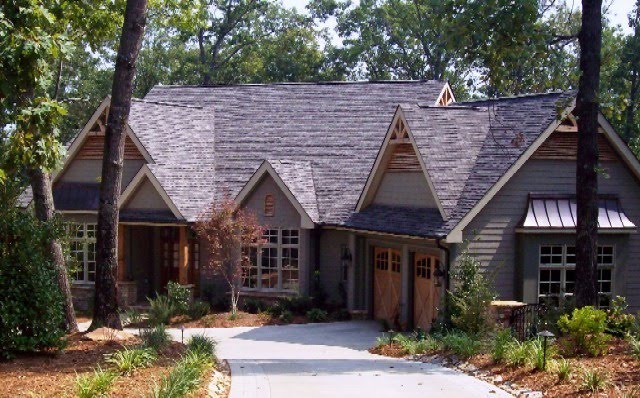Interior designers are dedicated advocates for creating strong symbiosis between architectural style and interior design style. Certainly there are ways to nudge those parameters a bit wider, but, in general, it is an excellent decision to edit choices to those which reinforce the relationship between architecture, design and environment.
Homeowners are usually clear about the look and feel they wish to achieve. They don't always know the best path to their objective. In response to this query, designers often encourage clients to make a commitment to what we call a "non-compete clause". Which simply means there is a greater chance of achieving the goal by editing existing possessions and, new acquisitions ,to those which enhance the architectural statement.
There is extensive use of natural materials: more stains than paints, more stone than tile, more hardwoods than carpet.There is also a common goal to create a spacious comfort rather than a cozy comfort. To echo the expansiveness of the vistas. To keep the interior decor open, uncluttered, muted, in order to " not compete" with the responses generated by soaring ceilings, wide open floor plans, huge expanses of glass and those ginormous vistas.
 One of the joys of being an interior designer is the opportunity to partner with families to achieve the home of their dreams. Sometimes new construction, sometimes remodeling, sometimes for a new purchase. In all of these scenarios a "non-compete clause" is a good idea. At design seminars we learn the most often stated reason for homeowners to contract design services is " We know the look and feel we want for our home, we are not sure of the best way to achieve our goal".
One of the joys of being an interior designer is the opportunity to partner with families to achieve the home of their dreams. Sometimes new construction, sometimes remodeling, sometimes for a new purchase. In all of these scenarios a "non-compete clause" is a good idea. At design seminars we learn the most often stated reason for homeowners to contract design services is " We know the look and feel we want for our home, we are not sure of the best way to achieve our goal".
One of the most successful tools for achieving the defined objective, is careful editing of existing furnishings and wise selection of new furnishings. Realizing the goal of symbiosis of design, architecture and environment is a fine reason for popping a cork.




No comments:
Post a Comment